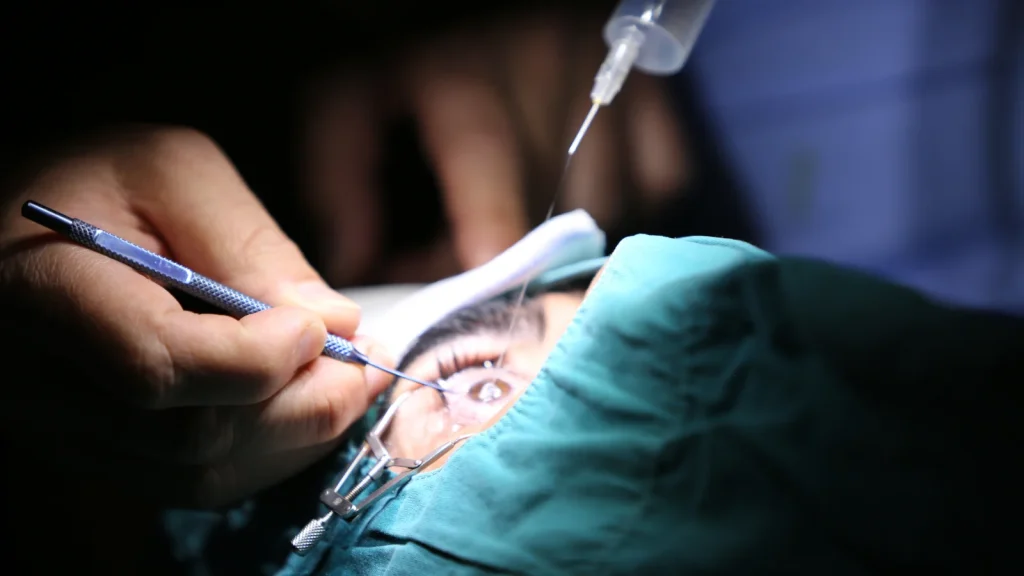Phacoemulsification | Cataract Surgery
What Are Cataracts?
A cataract is a condition where the eye’s natural lens becomes cloudy, obstructing light from passing through and impairing vision. Initially, it may cause mild vision problems, but if left untreated, it can progress to blindness. While cataracts are more common in older adults, younger individuals can also develop them.
How Do Cataracts Affect Vision?
In a healthy eye, light passes through a clear lens to focus on the retina, forming sharp images. A cataract disrupts this process by clouding the lens, resulting in blurred or dim vision.
Symptoms of Cataracts
- Blurred Vision: Difficulty seeing distant objects, particularly in low-light conditions, such as night driving.
- Glare Sensitivity: Discomfort in bright sunlight or artificial light.
- Double Vision: Seeing two images when using one eye.
- Color Distortion: Trouble distinguishing certain colors, especially blues and purples.
- Second Sight: Temporary improvement in near vision before further deterioration.
- Frequent Changes in Prescription: Rapidly worsening vision requiring updated glasses.
Our Specialties

Causes of Cataracts
- Aging
- Smoking and excessive alcohol use
- Diabetes mellitus
- Eye injuries
- Long-term corticosteroid use
- Prolonged exposure to UV radiation
Diagnosis of Cataracts
An ophthalmologist conducts:
- Vision Testing: To assess clarity and focus.
- Slit-Lamp Examination: A detailed check of the eye’s structure.
- Retinal Examination: After pupil dilation to inspect the back of the eye.
Treatment Options for Cataracts
- Non-Surgical Treatments
- Updated prescription glasses.
- Anti-glare glasses and tinted lenses.
- Recommendations to manage symptoms temporarily.
- Surgical Treatments
Surgery is recommended when cataracts significantly impair daily activities.
Common Cataract Surgery Techniques
- Phacoemulsification
- The most common method, involving ultrasonic vibrations to break up the cataract into small pieces, which are then removed.
- An artificial intraocular lens (IOL) is implanted in place of the natural lens.
- Minimal incision; stitches may not be needed.
- Extracapsular Cataract Surgery
- A larger incision is made to remove the cloudy lens as one piece.
- The lens capsule is left intact.
- Requires more sutures and has a longer recovery time.
- Intracapsular Cataract Surgery
- The entire lens and surrounding capsule are removed through a larger incision.
- Reserved for advanced or complicated cases.
Preparation Before Surgery
- Fasting for at least 8 hours before surgery.
- Use of prescribed eye drops leading up to the procedure.
- Guidance on managing current medications.
What Happens During the Procedure?
- Local or topical anesthesia is administered to numb the eye and reduce movement.
- The surgeon performs the selected surgical technique, often completing the process within 15 minutes to an hour.
Post-Surgery Care
- Patients rest in a recovery room for a few hours before discharge.
- Surgery is typically performed on a day-care basis.
- Follow-up visits begin 24 hours after the procedure.
- Pain is managed with prescribed analgesics.
Why Choose Sahaj Hospital for Cataract Surgery in Indore?
Sahaj Hospital provides expert cataract treatment using advanced technology and patient-centered care. Restore clear vision with our experienced specialists. Book your consultation today!
